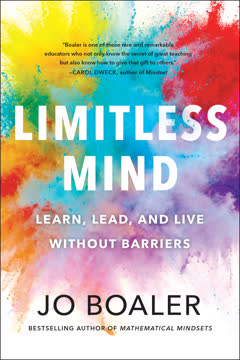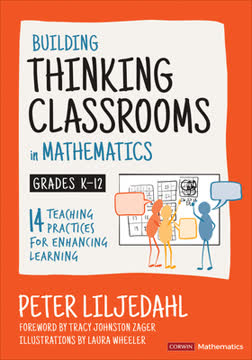Key Takeaways
1. Rewards undermine intrinsic motivation and genuine interest
"Do this and you'll get that" automatically devalues the "this."
Rewards kill motivation. When people are offered rewards for doing something, their interest in the activity itself tends to decrease. This effect has been consistently demonstrated in numerous studies across various settings, from schools to workplaces. The promise of a reward shifts focus from the intrinsic value of the task to the external incentive, ultimately reducing enjoyment and quality of performance.
Short-term compliance, long-term damage. While rewards may produce immediate results, they often lead to:
- Decreased creativity and risk-taking
- Reduced interest in challenging tasks
- A preference for the easiest path to obtain the reward
- Diminished long-term engagement with the activity
The use of rewards creates a dependency cycle, where more rewards are needed to maintain behavior, further eroding intrinsic motivation. This effect is particularly harmful in education, where the goal should be to foster a love of learning rather than a pursuit of external validation.
2. Punishment is ineffective and harmful in the long run
"Punishment doesn't even teach what not to do, much less the reason not to do it: what it really teaches is the desire to avoid punishment."
Punishment breeds resentment. While punishment may seem to produce immediate compliance, it fails to address the underlying causes of behavior and often leads to negative outcomes. Punitive measures:
- Create fear and anxiety
- Damage relationships between the punisher and the punished
- Teach avoidance rather than understanding
- Model aggressive behavior
Alternatives to punishment. Instead of resorting to punitive measures, adults should focus on:
- Understanding the reasons behind problematic behavior
- Collaboratively problem-solving with children
- Teaching skills and values that promote positive behavior
- Creating environments that support good choices
By moving away from punishment and towards a more supportive, problem-solving approach, we can help children develop intrinsic motivation to behave responsibly and ethically.
3. Praise can be manipulative and counterproductive
"Praise, like all rewards, is conditional."
The dark side of praise. While praise is often seen as universally positive, it can have detrimental effects similar to other forms of reward. Praise can:
- Create dependence on external validation
- Reduce intrinsic motivation
- Feel manipulative or controlling to the recipient
- Undermine self-assessment and autonomy
Effective feedback. Instead of reflexively praising, adults should:
- Offer specific, informational feedback about the task or behavior
- Encourage self-evaluation and reflection
- Focus on effort and process rather than innate abilities
- Avoid comparisons to others
By shifting from praise to more thoughtful, informative feedback, we can support genuine growth and maintain intrinsic motivation without the negative effects of conditional approval.
4. Grades and standardized tests hinder true learning
"Grades dilute the pleasure that a student experiences on successfully completing a task."
The problem with grades. Traditional grading systems and standardized tests often:
- Shift focus from learning to performance
- Encourage competition rather than collaboration
- Promote a fear of failure that inhibits risk-taking and creativity
- Provide limited, often misleading information about student learning
Alternatives to traditional assessment. To promote genuine learning:
- Use descriptive feedback instead of letter grades
- Implement portfolio-based assessments
- Encourage self-assessment and peer feedback
- Focus on individual progress rather than comparison to others
By moving away from grades and standardized tests, we can create educational environments that foster intrinsic motivation, deep understanding, and a love of learning that extends beyond the classroom.
5. Workplace incentives fail to improve performance
"Pay is not a motivator."
The myth of pay-for-performance. Despite widespread use, financial incentives and merit-based pay systems often fail to improve workplace performance. Research shows that:
- Extrinsic rewards can decrease intrinsic motivation
- Performance-based pay can lead to short-term thinking and unethical behavior
- Incentive systems often create competition that undermines teamwork
Effective workplace motivation. Instead of relying on extrinsic rewards, organizations should focus on:
- Creating meaningful, engaging work
- Fostering autonomy and mastery
- Promoting a sense of purpose and connection to the organization's mission
- Providing fair, livable wages as a foundation rather than a motivator
By shifting focus from external incentives to intrinsic motivators, companies can create more satisfying, productive work environments that benefit both employees and the organization as a whole.
6. Collaboration and autonomy foster better outcomes
"All of us are smarter than any of us."
The power of collaboration. Working together, rather than competing, leads to:
- Higher quality outcomes
- Increased creativity and innovation
- Better problem-solving
- Improved social skills and empathy
Balancing collaboration and autonomy. While collaboration is crucial, individual autonomy is equally important. Effective environments:
- Allow individuals to make meaningful choices
- Provide opportunities for both group and individual work
- Encourage diverse perspectives and ideas
- Support self-directed learning and exploration
By fostering both collaboration and autonomy, we create settings that maximize individual potential while harnessing the power of collective intelligence and creativity.
7. Problem-solving approach trumps behavioral control
"Something has gone wrong; what can we do about it?"
Moving beyond control. Traditional approaches to discipline often rely on controlling behavior through rewards and punishments. A problem-solving approach instead:
- Seeks to understand the underlying causes of behavior
- Involves children in finding solutions
- Teaches valuable skills for future situations
- Strengthens relationships and builds trust
Implementing a problem-solving approach:
- Identify the problem collaboratively
- Brainstorm potential solutions together
- Choose a solution and create a plan
- Implement the plan and evaluate its effectiveness
- Adjust as needed and celebrate successes
This approach not only addresses immediate issues but also helps develop critical thinking, empathy, and responsibility in the long term.
8. Empathy and perspective-taking are crucial for moral development
"Perspective taking helps us at once to see others as fundamentally similar to ourselves despite superficial differences (in that we share a common humanity) and as importantly different from ourselves despite apparent similarities."
Cultivating empathy. Developing the ability to understand and share the feelings of others is essential for moral growth. To foster empathy:
- Model empathetic behavior
- Discuss emotions and perspectives in various situations
- Encourage children to consider how their actions affect others
- Expose children to diverse experiences and viewpoints
Teaching perspective-taking. Specific strategies include:
- Role-playing exercises
- Analyzing literature from multiple character viewpoints
- Discussing current events from various perspectives
- Encouraging children to imagine themselves in others' situations
By prioritizing empathy and perspective-taking, we help children develop a strong moral foundation and the ability to navigate complex social situations ethically.
9. Creating caring communities promotes prosocial values
"If children are to internalize prosocial values, they must be helped to become part of a caring community."
Building community in schools. Effective strategies include:
- Regular class meetings for decision-making and problem-solving
- Cross-age buddy systems and mentoring programs
- Collaborative projects that benefit the whole school or local community
- Celebrations of collective achievements and shared experiences
Extending community beyond school. To reinforce prosocial values:
- Involve families and community members in school activities
- Encourage student participation in community service
- Create opportunities for students to apply their skills to real-world problems
- Foster connections between school learning and community needs
By embedding children in caring communities, we provide living examples of prosocial values and create opportunities for meaningful participation and contribution.
10. Authentic choices empower and motivate individuals
"The more a child feels part of the process, the more his point of view is solicited and taken seriously, the fewer problems there will be to deal with."
The importance of choice. Providing genuine opportunities for decision-making:
- Increases intrinsic motivation
- Develops a sense of responsibility and ownership
- Improves engagement and performance
- Builds self-confidence and autonomy
Implementing meaningful choice:
- Involve children in setting rules and consequences
- Offer options within structured activities
- Allow for self-directed learning time
- Encourage input on curriculum and assessment methods
- Provide opportunities to choose how to demonstrate knowledge
By consistently offering authentic choices, we empower individuals to take responsibility for their learning and behavior, fostering intrinsic motivation and a sense of personal agency.
Last updated:
FAQ
What's Punished by Rewards about?
- Critique of Behaviorism: Punished by Rewards by Alfie Kohn critiques the use of rewards, such as grades and praise, as motivators in education, parenting, and the workplace. Kohn argues that these practices undermine intrinsic motivation and can lead to negative outcomes.
- Focus on Intrinsic Motivation: The book emphasizes the importance of fostering intrinsic motivation, which is the natural desire to learn and engage in activities for their own sake. Kohn believes that rewards can diminish this motivation, leading to a lack of genuine interest in tasks.
- Real-World Implications: Kohn discusses how the reliance on rewards affects relationships, learning, and performance, ultimately suggesting that a shift away from behaviorist practices is necessary for true engagement and success.
Why should I read Punished by Rewards?
- Challenging Conventional Wisdom: The book challenges widely accepted beliefs about motivation, making it essential for educators, parents, and managers who want to understand the deeper implications of their practices.
- Evidence-Based Arguments: Kohn supports his claims with extensive research and examples, providing readers with a well-rounded understanding of the negative effects of rewards.
- Practical Alternatives: The book offers alternatives to reward-based systems, encouraging readers to adopt strategies that promote intrinsic motivation and healthier relationships.
What are the key takeaways of Punished by Rewards?
- Rewards Undermine Motivation: Kohn argues that rewards can diminish a person's natural interest in an activity, leading to a cycle of dependency on external validation.
- Control and Compliance: The use of rewards is fundamentally controlling, which can lead to resentment and a lack of genuine engagement.
- Focus on Relationships: Building genuine relationships based on trust and respect is more effective than using rewards to elicit compliance.
What are the best quotes from Punished by Rewards and what do they mean?
- "Do this and you'll get that.": This phrase encapsulates the behaviorist approach to motivation, suggesting that people will only engage in tasks for the sake of rewards. Kohn argues that this mindset undermines intrinsic motivation.
- "Rewards punish.": Kohn highlights the paradox that rewards, while intended to motivate, can actually lead to feelings of resentment and control.
- "Children have an intrinsic desire to learn.": This statement reinforces Kohn's belief that learning should be driven by curiosity and interest rather than external incentives.
How does Alfie Kohn define intrinsic motivation in Punished by Rewards?
- Natural Desire to Learn: Kohn describes intrinsic motivation as the inherent drive to engage in activities for their own sake, without the need for external rewards.
- Contrast with Extrinsic Motivation: He contrasts intrinsic motivation with extrinsic motivation, which relies on external rewards to encourage behavior.
- Importance of Autonomy: Kohn emphasizes that fostering an environment where individuals feel autonomous and self-directed is crucial for maintaining intrinsic motivation.
What are the negative effects of rewards according to Punished by Rewards?
- Diminished Interest: Kohn argues that rewards can lead to a decrease in interest in the task itself, as individuals begin to focus on the reward rather than the activity.
- Reduced Quality of Work: The emphasis on rewards can lead to a decline in the quality of work, as individuals may choose easier tasks to secure the reward.
- Strained Relationships: The use of rewards can create tension and competition among peers, undermining collaboration and trust.
How does Alfie Kohn suggest we motivate children without using rewards?
- Foster Intrinsic Motivation: Kohn advocates for creating environments that nurture children's natural curiosity and desire to learn.
- Encourage Autonomy: Providing children with choices and opportunities for self-directed learning can help maintain their intrinsic motivation.
- Focus on Meaningful Learning: Kohn encourages educators and parents to emphasize the value of learning for its own sake, rather than framing it as a means to an end.
What alternatives to rewards does Alfie Kohn propose in Punished by Rewards?
- Informational Feedback: Kohn suggests providing constructive feedback that focuses on the quality of work rather than using praise as a reward.
- Collaborative Learning: Encouraging teamwork and collaboration can foster a sense of community and shared responsibility, reducing the need for competition.
- Emphasizing Process Over Product: Kohn advocates for valuing the learning process itself rather than the end result.
How does Alfie Kohn address the use of praise in Punished by Rewards?
- Praise as a Controlling Mechanism: Kohn argues that praise can be just as controlling as tangible rewards, leading to dependency on external validation.
- Negative Impact on Self-Esteem: While praise is often intended to boost self-esteem, Kohn suggests that it can have the opposite effect by making individuals feel judged.
- Encouragement Over Praise: Kohn advocates for using encouragement and constructive feedback instead of praise.
What does Alfie Kohn say about the relationship between rewards and creativity in Punished by Rewards?
- Rewards Kill Creativity: Kohn argues that rewards can stifle creativity by narrowing focus and discouraging risk-taking.
- Extrinsic Motivation Limits Exploration: When individuals are motivated by rewards, they are less likely to explore new ideas and take creative risks.
- Intrinsic Motivation Fuels Creativity: Kohn believes that intrinsic motivation is crucial for creativity, as it encourages individuals to engage deeply with their work.
How can educators foster intrinsic motivation according to Punished by Rewards?
- Encourage Autonomy: Kohn emphasizes the importance of providing students with choices and control over their learning.
- Create Meaningful Learning Experiences: The book advocates for designing lessons that are relevant and engaging to students.
- Focus on Mastery and Understanding: Kohn encourages educators to prioritize mastery and understanding over grades and performance metrics.
How does Alfie Kohn suggest we address behavioral issues without using rewards or punishments in Punished by Rewards?
- Mutual Problem Solving: Kohn advocates for a collaborative approach to addressing behavioral issues, where adults and children work together to find solutions.
- Focus on Communication: The book highlights the need for open communication between adults and children.
- Encourage Responsibility: Kohn suggests that children should be given opportunities to take responsibility for their actions.
Review Summary
Punished By Rewards challenges the effectiveness of rewards and praise in education, parenting, and the workplace. Kohn argues that extrinsic motivators undermine intrinsic motivation and creativity. Many readers found the book eye-opening and transformative, though some felt it was repetitive and lacked practical alternatives. The book's core message resonated with parents and educators, prompting them to reconsider their approaches. While some disagreed with certain points, most appreciated Kohn's well-researched arguments against behaviorism and the pervasive use of rewards in society.
Similar Books





Download PDF
Download EPUB
.epub digital book format is ideal for reading ebooks on phones, tablets, and e-readers.





